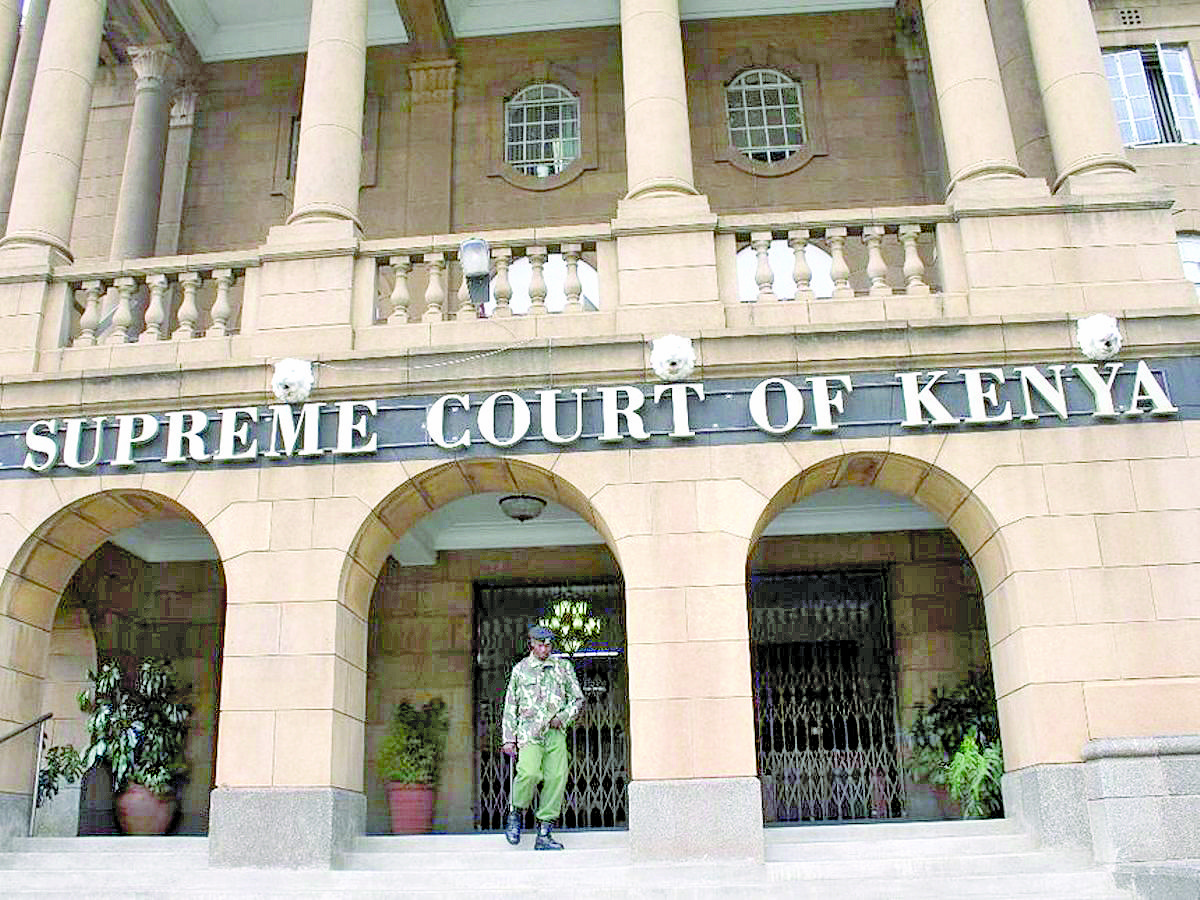Ruto promise of well-funded Judiciary in focus after flop
By Samuel Kariuki, September 19, 2024President William Ruto has come under sharp criticism for undermining the independence of the Judiciary barely two years after fashioning himself as a defender of the corridors of justice.
A newly released report that focuses on the status of judicial independence in Kenya documents among other issues how political threats and attacks by the government and the opposition alike aimed at the Judiciary has negatively influenced delivery of justice.
The Upholding Judicial Independence in Kenya report says Ruto has turned around and first attacked the Judiciary when the courts rejected the housing levy last year and recently when the Kenya Kwanza government decided to send the police officers for the peace keeping mission in Haiti.
Additionally, the report also notes that Opposition leader Raila Odinga was against a meeting between Ruto and Chief Justice Martha Koome despite the two being leaders of two arms of government, claiming it was a threat to judicial independence.
“Government allied politicians also continued with attacks on the Judiciary in 2023 whenever it faulted Ruto administration for illegalities abd irregularities in implementing government projects. Recently the judiciary has been in the spotlight after it questioned why Parliament ignores public missions,” the report published by the Friedrich Naumann Foundation reads.
Undermines authority
According to the report rampant disregard of court orders by the executive continue to be witnessed, which undermines the authority of the judiciary thus posing a challenge in the balance of power within government.
It warned that, when a court judgment is ignored, it does not matter if the judiciary is independent because the words of the politicians take precedence over the judge’s ruling.
“Politicians often struggle to accept that their powers must be exercised with the legal boundaries. The court has a duty to intervene when legal norms protecting individual rights and social cohesion are violated,” Friedrich reported.
It went on: “Instead, courts and individual judges are perceived as nuisances and stumbling blocks to government initiatives, whose salutary impact is assumed to be unquestionable and beyond scrutiny. Even the current President, William Ruto is on record saying he would not respect court orders that frustrate government projects”
In a bid to maintain the integrity and independence of the Judiciary, the report emphasized the need of formalizing regulations governing the transfer of judges.
Clear guidelines
Further, the report pointed out that without clear guidelines, the transfer process can become arbitrary and susceptible to manipulation which undermines the judicial officers’ impartiality and independence.
Citing the transfer of Justice Mugure Thande from the Constitutional and Human Rights Division to the Malindi High Court immediately after her ruling to temporarily halt the collection of taxes under the 2023 Finance Act, the report said transfers must be based on objective criteria such as performance, expertise and judicial needs and not on external pressures or political influence.
The report also turns the spotlight on the judiciary over widespread claims and perception of corruption within the courts noting that such allegations erode public trust and weaken the judiciary’s ability to check government power thus undermining the rule of law and democratic governance.
Exposed vulnerability
“Corruption allegations typically surface in advanced stages of proceedings as seen in the cases of judges Joseph Mutava and Said Chitembwe. Initial complaints were withdrawn in both instances Corruption and the perception of its prevalence remain a persistent concern,” the report stated.
The study also highlighted violence meted on judges while in discharging their mandate including the recent incident when Magistrate Monica Kivuti was shot and later died in hospital saying it exposed the vulnerability of the judicial officers who depend on other arms of government to guarantee their security.
Friedrich Foundation Country Director Stefan Schott noted that the issues raised in the report were real attempts to weaken the judiciary’s ability to act as a check on power, to interpret laws fairly, and to protect the rights of the people.
Schott said judges are at a disadvantaged position when in collision with politicians because they resort to use the power of the state to undermine judicial officers when decisions go against their interests.
“The politicians respond with threats of budget cuts–they slash budgets sometimes, block appointments, and even public denunciations of judges and magistrates by name. There have also been the old tricks of arbitrary transfers; the bad apples within the Judiciary, and the loud prominent people within the criminal justice system, who always accuse judges of being corrupt,” Schott said in a statement read on his behalf by Judie Kaberia, a Project Manager at the Foundation during opening ceremony of the All Africa Judges and Jurists Summit.
He added: “When people believe that justice is for sale to the highest bidder, trust in the system crumbles. Public officials avoid accountability. The rule of law becomes nothing more than an empty promise.”
Addressing the forum attended by judges from across Africa, Chief Justice Martha Koome who was the chief guest extended her call for adequate budgetary allocations to the judiciaries in the continent.
